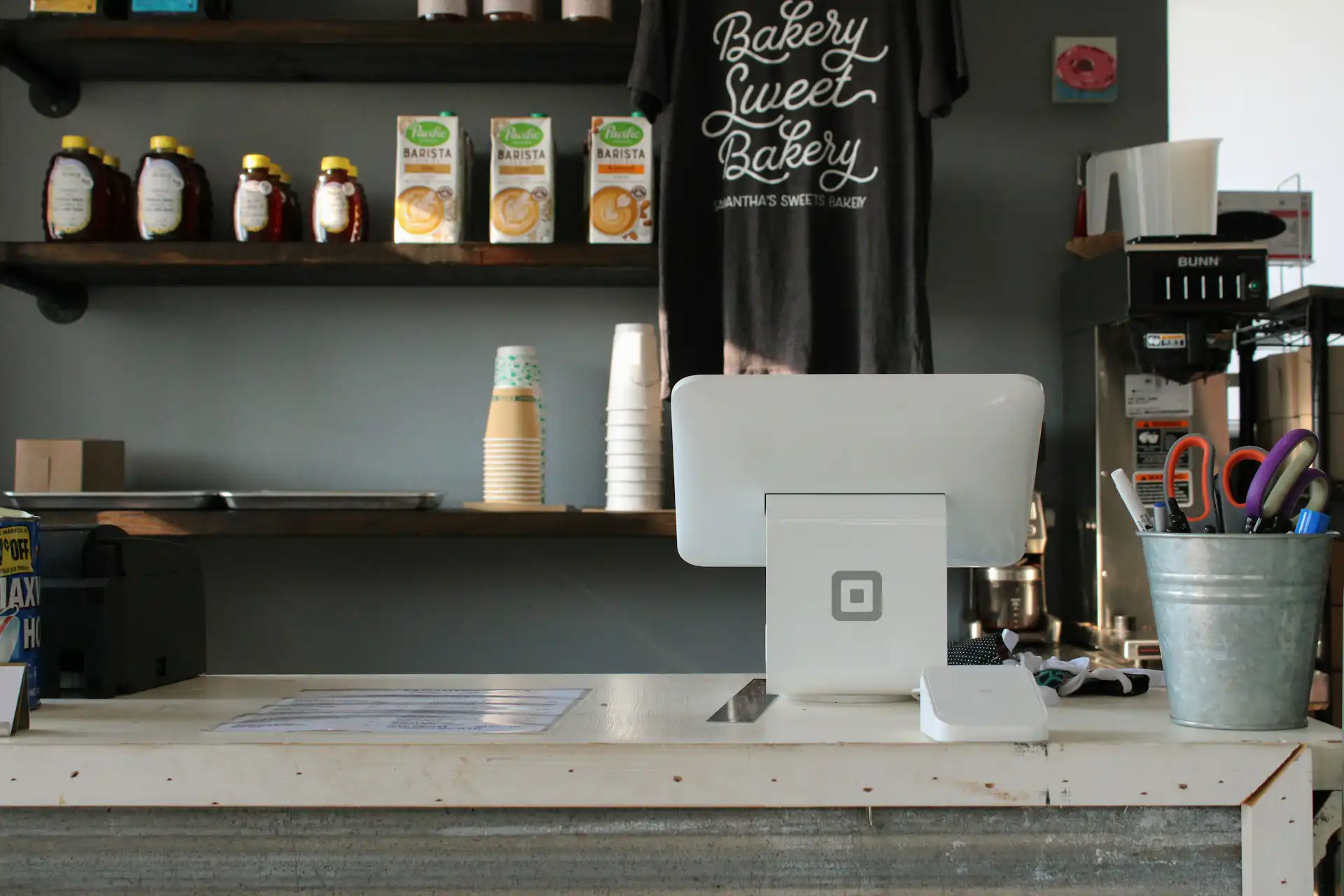How to Calculate & Reduce Restaurant Overhead Costs?
Understanding Restaurant Overhead Costs
Effectively managing restaurant overhead costs is essential for maintaining profitability and ensuring business growth. By analyzing expenses, optimizing resources, and implementing expense-control strategies, restaurants can strengthen financial stability, minimize unnecessary expenditures, and allocate funds to enhance customer experience and operational efficiency.
What Is Overhead Cost in a Restaurant?
Every restaurant incurs restaurant overhead costs, which contain fixed expenses such as rent, utilities, insurance, and administrative salaries. Unlike direct expenses like food and labor, these expenditures endure constantly regardless of daily sales. Handling these e competently guarantees a restaurant’s long-term profitability.
Why Is Overhead Rate Important?
The restaurant overhead percentage plays a crucial role in defining pricing approaches and financial planning. A high overhead rate can diminish profit margins, while an optimized rate safeguards maintainable operations. Knowing your average restaurant overhead helps in setting competitive prices and improving expenditure control.
Examples of Restaurant Overhead Costs
- Rent and Lease Expenditures: Fixed monthly property expenses.
- Utilities: Electricity, gas, water, and internet bills.
- Assurance: Business liability, property, and worker’s compensation.
- Licenses & Permits: Government-mandated working expenses.
- Marketing & Advertising: Digital and offline publicity expenses.
Our Partners



How to Calculate Restaurant Overhead Costs?
Calculating restaurant overhead expenses includes identifying all fixed and variable expenses, applying the overhead percentage formula, and comparing it to industry benchmarks. This process helps restaurant owners manage expenses efficiently and make strategic financial decisions for sustainable profitability.
Identify All Your Expenses
Tracking restaurant overhead costs is indispensable for economic stability. Classifying expenses like rent, utilities, payroll, and maintenance helps recognize areas for expenditure reduction, ensuring efficient budget allocation and improving overall profitability without conciliatory service quality.
Use This Formula for Overhead Calculation
Understanding your restaurant's overhead percentage helps you make informed financial decisions. Frequently monitoring these metrics permits restaurant owners to adjust pricing, control expenditures, and improve profitability while staying competitive in the industry. Restaurant Overhead Percentage = (Total Overhead Costs / Total Sales) x 100
Compare Your Costs to Industry Standards
Comparing your restaurant's overhead percentage to business standards helps recognize expense inefficiencies and areas for improvement. By analyzing similar businesses, you can set realistic financial goals, optimize spending, and ensure your restaurant operates competitively while maintaining effectiveness.
How to Calculate Restaurant Overhead
If the total monthly overhead expense of your restaurant is $15,000 and the total revenue is $75,000, the restaurant overhead percentage will be: (15,000 / 75,000) x 100 = 20% This indicates that 20% of the restaurant's earnings go towards overhead expenses.
Get started today in three simple step
Start with Entering Info
Import your Profit & Loss Statement from your accounting system or simply enter from our questionnaire or data entry form
Allocate your Costs
Allocate all your costs into the correct division of your company so our system can determine your exact cost and rates
Adjust to Ensure Profits
Our system will show you exactly which services or products are profitable and what price points are needed if they are not

Case Study - What Joe Needs & Does
Joe, a restaurant owner, struggled with high restaurant overhead costs affecting his profits. By using a restaurant overhead calculator, he recognized unnecessary expenses, optimized labor, and adjusted pricing. These approach changes helped him lower expenses, advance efficiency, and increase cost-effectiveness.
Restaurant Metrics & Financial Performance Calculators
Joe utilized the Restaurant Labor Cost Calculator to assess staffing expenses and improve scheduling efficiency. By examining Restaurant Performance & Financial Metrics, he recognized cost-saving opportunities, optimized processes, and improved profitability, ensuring his restaurant remained financially stable and competitive in the industry.
Easily Calculate (all) your
Business Hourly Rates...

OVERHEAD RATE
All Overhead Costs Including Rate Per Hour, Percentage of Labor and Annual

BREAK-EVEN RATE
All Break-Even Costs Including Rate Per Hour | Week | Month | Annual and Sales Revenue

LABOR BURDEN RATE
All Labor Burden Costs Including Rate Per Hour, Percentage of Labor and Annual

LABOR GROUP RATE
All Business Numbers can be broken out by Divisions | Crews | Departments or any way you Require.

PROFIT MARGIN RATE
All Profit margin totals, annual, percentages and the most important, your profit per hour rate

SELLING RATE
How much you need to charge per hour to recover all operational costs with your profit margin included
5 Ways to Lower Restaurant Overhead Costs
Reduce Restaurant Labor Costs
Implementing smart scheduling with the Restaurant Labor Cost Calculator helps control payroll expenses while upholding efficiency. Cross-training employees confirms flexibility, decreases overtime costs and enhances productivity, ultimately lowering restaurant overhead costs and improving overall financial performance without compromising service quality.
Renegotiate Your Rent & Sublease Your Space
Negotiating better lease terms can significantly reduce restaurant overhead costs. Discussing rent adjustments with your landlord or subleasing unused space helps lower expenditures, freeing up funds for indispensable investments like marketing, technology, and staff training to improve overall business efficiency and profitability.
Optimize Your Restaurant Technology & Marketing Strategy
Utilizing advanced technology and automation can help reduce hotel overheads by streamlining operations. Executing online booking systems, automated payroll management, and data-driven marketing strategies reduces labor costs, optimizes resource allocation, and improves overall efficiency, ultimately refining profitability for hotel businesses.
“You Don’t NEED to have any Experience in Accounting or be a Math Genius to Get your True Costs!”…

Choose Energy-Efficient Equipment & Cut Utility Bills
Using a restaurant break-even calculator helps determine the income needed to cover costs, including utilities. Investing in energy-efficient appliances and LED lighting reduces electricity and water bills, lowering overall expenditures and cultivating profitability while maintaining a maintainable and cost-effective restaurant operation.
Reduce Waste & Energy Costs
Applying portion control, inventory tracking, and maintainable waste management strategies can significantly reduce restaurant overheads. By diminishing food waste, optimizing stock levels, and improving efficiency, restaurants can lower costs, enhance profitability, and ensure better resource use without compromising food quality or customer satisfaction.

How to Reduce Restaurant Turnover & Improve Staff Retention?
Retaining skilled employees decreases turnover costs and improves productivity. Applying competitive salaries, employee benefits, and a positive work culture fosters loyalty. Providing training opportunities and career growth paths ensures staff satisfaction, ultimately lowering hiring expenses and improving overall restaurant efficiency and success.
“You Don’t NEED to have any Experience in Accounting or be a Math Genius to Get your True Costs!”…
Additional Restaurant Financial Resources
Accessing additional restaurant financial resources helps restaurant owners accomplish expenditures efficiently. From budgeting guides to cost-control strategies, these tools provide insights on reducing restaurant overhead costs, improving profit margins, and streamlining operations, ensuring long-term financial consultancy and business success in a competitive market.
You can implement cost-saving techniques like digital record keeping, energy-efficient equipment, etc., to reduce expenses in the future. Manage your costs proactively and improvise your financial strategies to enhance profitability in your dental practices. However, you have to plan the expenses so as not to compromise your quality.
Restaurant Cost Control Guide
Understanding cost-saving techniques is vital to minimizing restaurant overheads. Approaches like negotiating supplier contracts, optimizing menu pricing, and leveraging technology for well-organized operations help reduce unnecessary expenses. Implementing these methods ensures better financial management, leading to increased profitability and long-term commercial sustainability.
Give our users a great experience





Frequently Asked Questions.
How do I calculate restaurant overhead costs?
On top of recognizing fixed and variable costs, the formula (Total Overhead Costs ÷ Total Sales) x 100 allows restaurant owners to analyze the cost-effectiveness of profit, providing deeper insight into profitability and expenditure analysis.
What is the ideal overhead percentage for restaurants?
How can I reduce overhead in my restaurant?
Managing restaurant overhead costs efficiently includes reducing rent, optimizing labor, and minimizing utility expenses. Implementing smart budgeting, energy-efficient equipment, and cost-control strategies helps advance financial stability while maintaining quality service and ensuring long-term business success in a competitive market.
How do I find my restaurant’s break-even point?
A restaurant break-even point calculator helps determine the sales wanted to cover all expenses. By analyzing costs and revenue, restaurant owners can set realistic financial goals, optimize pricing strategies, and improve profitability for long-term business success.
What factors affect hotel overhead expenses?
Hotel overheads contain staffing costs, utilities, property maintenance, and operational expenses. Managing these effectively over energy-efficient solutions, optimized labor scheduling, and cost-saving strategies helps hotels decrease expenses, increase profitability, and maintain high service standards for guests.
Does this tool provide a restaurant overhead calculator?
Our platform offers a restaurant overhead calculator that simplifies expense tracking and financial planning. By analyzing costs accurately, restaurant owners can identify inefficiencies, reduce unnecessary spending, and improve overall profitability while maintaining smooth business operations.
Is there an easy way to track expenses?
Our platform offers an automated system for monitoring restaurant overhead costs in real-time, helping restaurant owners track expenditures, optimize budgeting, and make data-driven decisions to improve monetary stability and maximize profitability efficiently.
How does this platform assist in cost control for hotels?
We provide financial tools to analyze and optimize hotel overheads, helping businesses diminish operational prices, advance budgeting, and enhance overall efficiency while ensuring high-quality service and profitability in the competitive hospitality industry.
What makes this solution reliable for managing overhead?
Our system offers accurate data-driven insights, helping businesses reduce restaurant overheads competently. By leveraging analytics, restaurant owners can classify cost-saving opportunities, streamline operations, and augment profitability while maintaining quality service and customer satisfaction.
My question is not listed here.
Contact us for expert guidance on restaurant overhead costs and financial management. Our team provides tailored solutions to help optimize expenses, advance profitability, and guarantee long-term success in the modest restaurant industry.
Get in Touch
Have a question for us?
Need expert advice or have a question? We’re here to help! Reach out to us, and our team will get back to you as soon as possible.